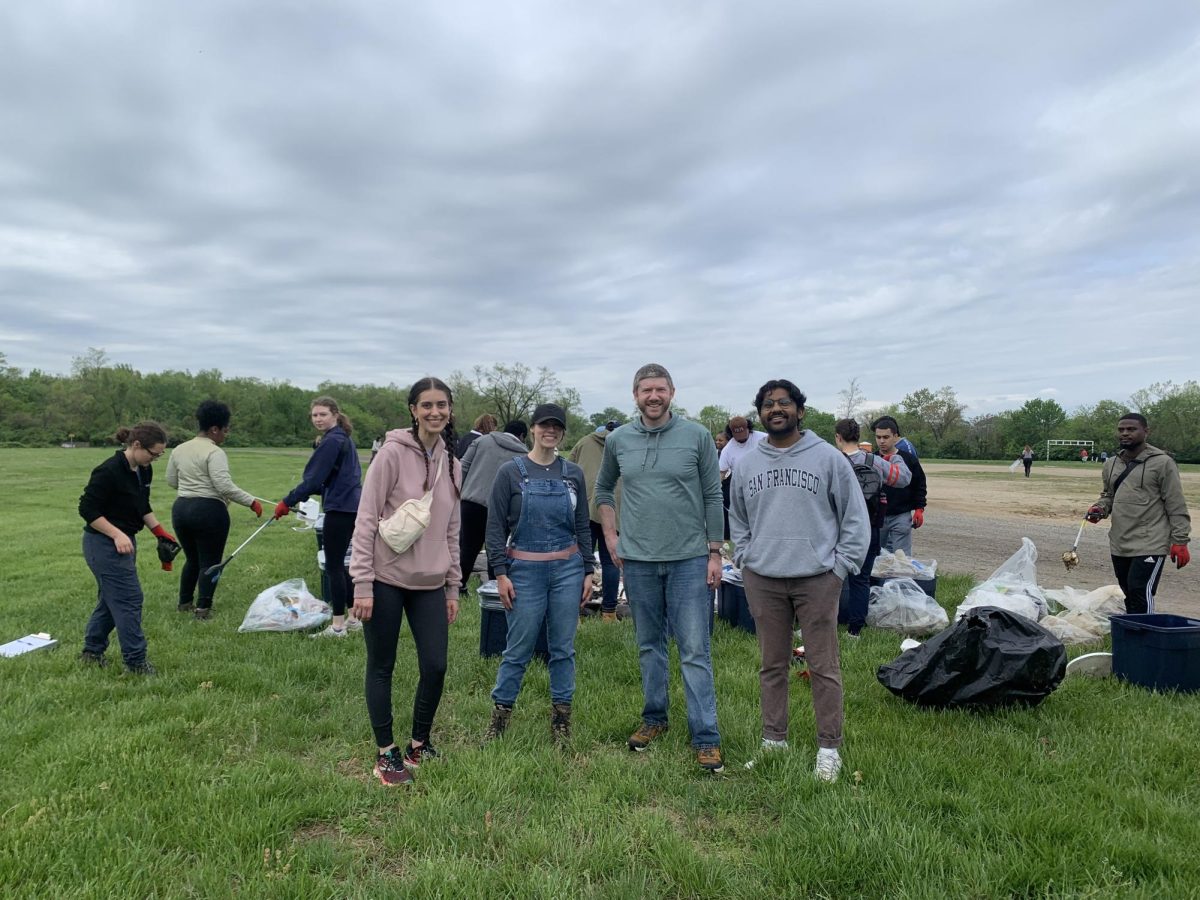With Monday’s announcement of its Myriad Voices, a cross-cultural festival spanning more than two years, the Laboratory of Global Performance and Politics continues its goal of bringing together performance and theater with international affairs.
The dual vision of Cynthia Schneider, professor of diplomacy in the School of Foreign Service, and Derek Goldman, professor of theater and performance studies and artistic director of the Davis Performing Arts Center, saw the founding of the Lab, as it is commonly known, almost a year ago.
Schneider outlined a three-pronged approach to achieving the Lab’s goals of examining the intersection of theater and politics. The approach began by holding policy conversations about performances from abroad.
“We also are creating new work with our students here and having them engage with students and other people of their age in other parts of the world,” Schneider said.
The second step of the approach includes student work on the subjects presented, culminating with courses taught jointly by the two professors, attended by both students from the School of Foreign Service and the department of theater and performance studies.
The Lab’s inception stemmed from Schneider and Goldman’s commonalities. Both felt a need for the Lab when they hosted a conference in the summer of 2012 with the use of a Reflective Engagement in the Public Interest grant, bringing together people interested in the topics of theater and international affairs.
“We saw from that gathering that there was a tremendous interest and need,” Schneider said. “There are many, many other people interested in this intersection, and they had nowhere else to go. I do believe our program is unique, and so we attract a lot of interest from outside.”
The specific focus of the Lab positions it as a leader and resource in the field.
“It was out of these conversations that this vision for this partnership between theater and performance studies and the School of Foreign Service came, being a resource center for the field, being a convening space for our students in the curriculum and in programming, and really trying to bring the arts and policy world together in deeper dialogue,” Goldman said.
Goldman pointed to the energy at Georgetown with its commitment to politics, social justice and cura personalis as the perfect breeding ground for the initiative.
Over the past year, the Lab hosted theater groups from abroad for performances aiming to explore politics more deeply. Schneider highlighted the Freedom Theatre, a group from a refugee camp in Palestine who adapted the play “The Island,” a South African piece about apartheid, as a perfect example of the benefits of the Lab. The group performed at Georgetown in September.
“If it was just presented as a lecture, maybe nobody would have believed him. But instead what they saw was the story of two people in prison — and saw what that was like, their hopes, their fears, their dreams,” she said. “You learn through someone’s stories. … The most effective way — and this is just a neurological fact — to impact someone is through a story. So presenting this material in the context of play was such a powerful way to do it.”
Students who attended the event were awed by its intensely personal nature.
“Seeing ‘The Island’ taken out of its South African context and dropped into the Israeli-Palestinian situation was pretty powerful and pretty provocative, and that it was happening in the U.S. capital raised the intensity of the conversation taking place,” Ben Card (COL ’17) said. “Being in the same space as a performance humanizes politics in a way that rarely happens.”
In addition to the performances themselves, Schneider referenced policy discussions after the theatrical display as critical to the Lab, pointing to an example of Madeleine Albright speaking on her experience with Václav Havel, the first president of the Czech Republic, after “Anticodes,” a performance based on Havel’s poetry, in December.
Both professors noted that the end goal of the Lab is to use the performances to humanize and expand traditional understandings of politics, which often just focus on issues.
“Theater, because of its narrative dimensions, because of its live, interpersonal dimensions, has a real and human contact. It’s much harder in that context to dismiss the human dimensions of stories,” Goldman said.
Schneider combatted any skepticism of the medium of theater by highlighting the performance’s allowance for greater integration.
“I recognize that we’re at the School of Foreign Service. We’re not at the London School of Drama,” Schneider added. “I want the information that the people get through the performances then to be integrated into the knowledge they have already and will gain going forward about the particular subject.”
With positive feedback received from both Georgetown and the broader community thus far, the Laboratory will progress with Myriad Voices, a project involving a number of events aimed to increase understanding of majority-Muslim populations around the world.




















